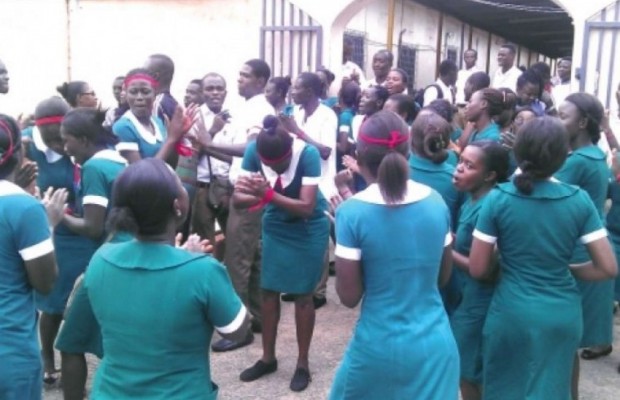The nationwide strike declared by the Ghana Registered and Midwives Association (GRNMA) has been halted by an injunction issued by the Industrial and Labour Division of the High Court in Accra. The court, presided over by Justice Priscilla Dikro Ofori, deemed the strike illegal and ordered the GRNMA to call it off immediately.
The interim injunction, granted on Thursday, June 5, 2025, was the result of an ex-parte application by the National Labour Commission (NLC). The court’s order will last for 10 days, during which the NLC has the option to apply for a further injunction if deemed necessary, with prior notice served to the GRNMA.
Justice Ofori’s order restrained GRNMA, its executives, officers, members, agents, servants, employees, and affiliated individuals from continuing with the strike. The court explicitly stated, “It is hereby ordered that the application is granted and the respondent herein, its executives, officers, members, agents, servants, employees and other persons linked to the respondent are hereby injuncted or restrained from carrying on their illegal strike with immediate effect.”
The GRNMA had initially notified the NLC of their intention to strike due to delays in the implementation of their 2024 Collective Agreement, citing unmet promises from the Ministry of Health and the Fair Wages and Salaries Commission (FWSC) regarding allowances, accommodation issues, and workload concerns. Despite the NLC’s directive to suspend all planned actions pending mediation, the GRNMA proceeded with the strike after failing to attend a scheduled meeting.
The ongoing strike has severely impacted healthcare delivery in the country, with major hospitals struggling to provide basic services as some wards remain deserted. The Ministry of Health has urged the nurses to return to work while negotiations continue, emphasizing the threat the strike poses to the already overburdened public healthcare system.
In conclusion, the injunction on the GRNMA strike serves as a temporary measure to restore normalcy to healthcare services in Ghana. The need for constructive dialogue and adherence to legal procedures under the Labour Act remains paramount in resolving the grievances of healthcare workers while ensuring the continued delivery of essential medical care to the public.








